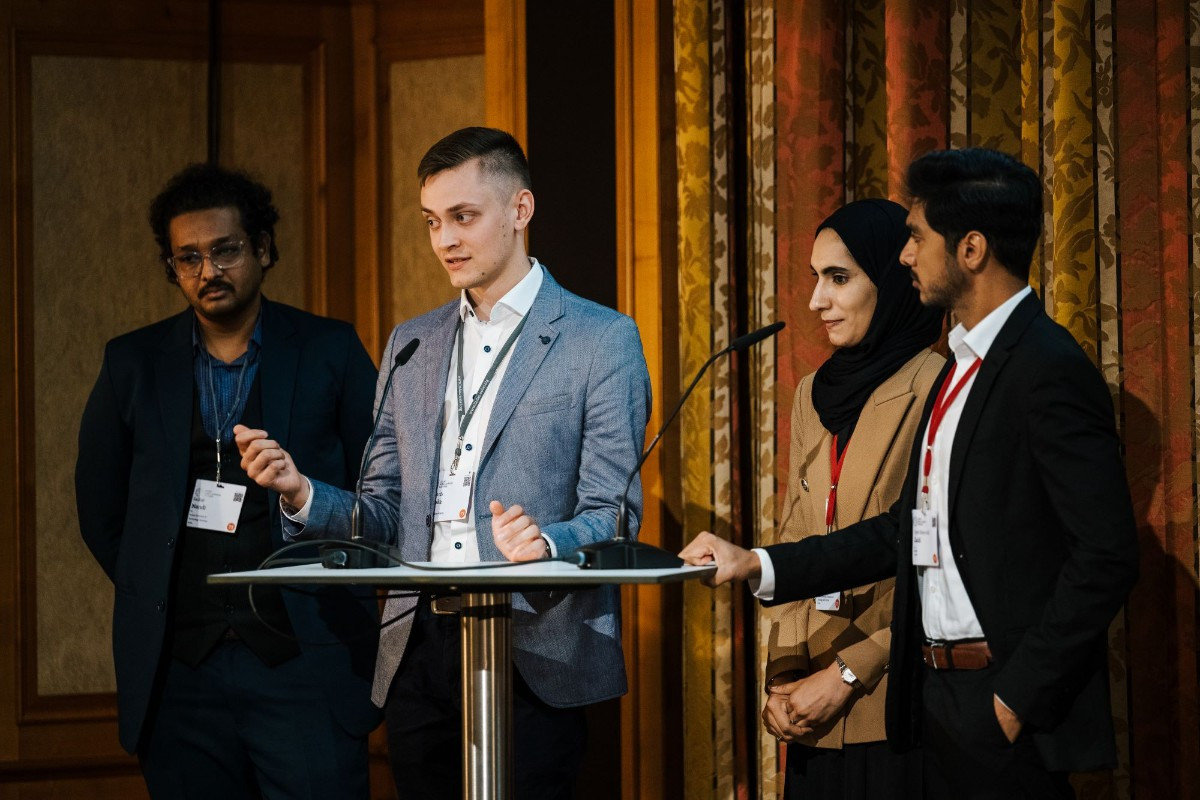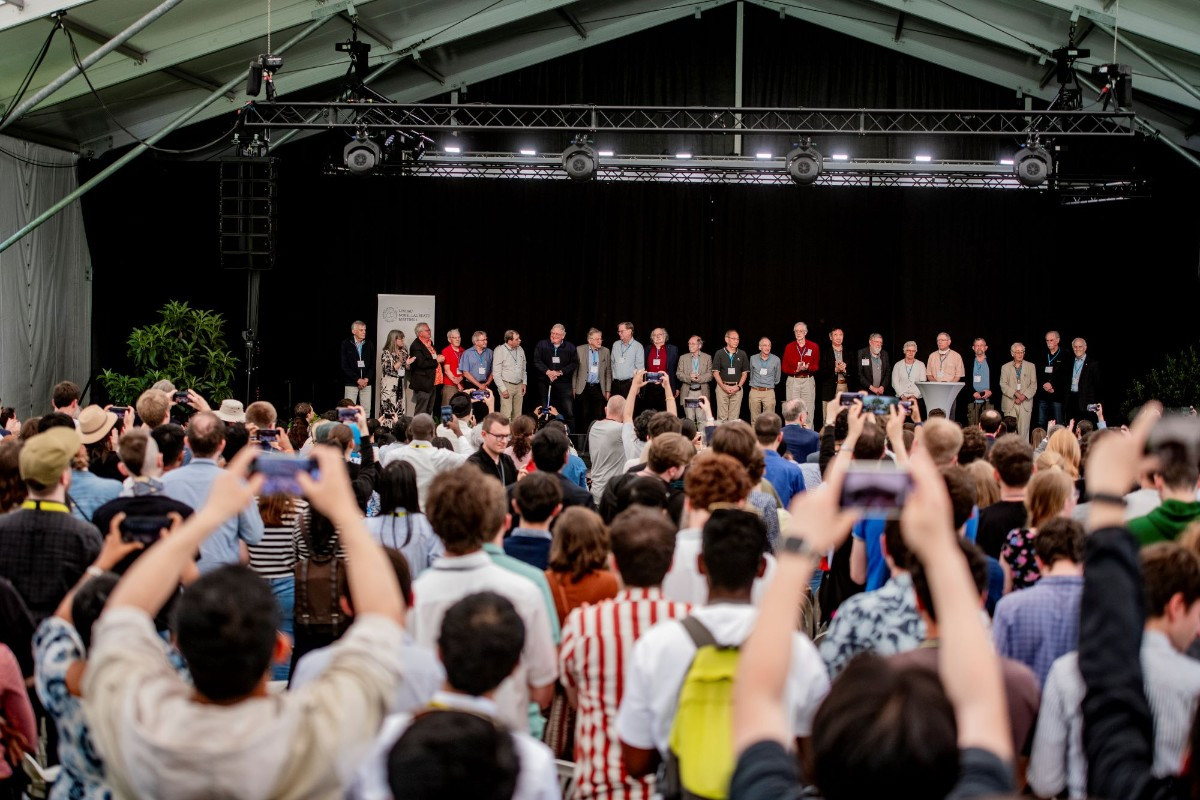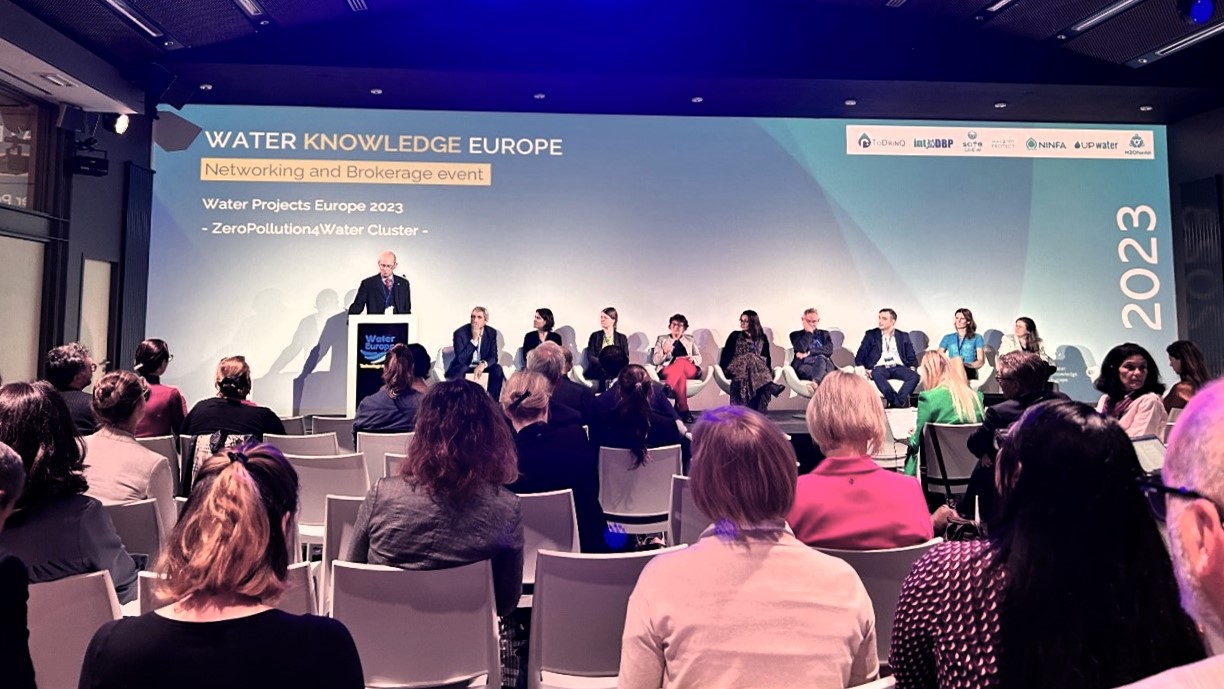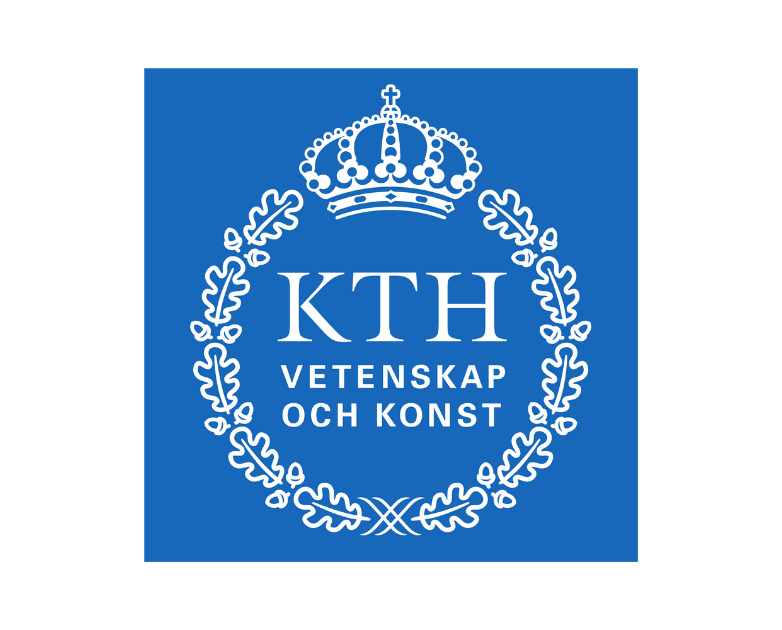This summer, from June 30 to July 5, Lindau, Germany, hosted the 73rd meeting of Nobel laureates, focused on physics. For the first time, Latvia was represented in this event, and the first participant from Latvia was the ISSP UL research assistant from the Spectroscopy Laboratory, Rihards Ruska. Among 650 young researchers invited to this prestigious event, Ruska’s participation marked a significant milestone for Latvia.
Rihards Ruska’s path to this event began with a competition announced by the Association of Young Researchers of Latvia (LJZA) in October of the previous year. The competition was open to students and researchers under 35. The selection process involved two stages: first, an evaluation of applications by LJZA and field experts, which nominated two candidates for Latvia, and second, the completion of an application form required by the Lindau meeting organizers. Ultimately, Ruska was the only participant from Latvia to confirm his attendance.
“When I found out I was approved, I didn’t quite understand the significance at first,” Ruska recalls with a laugh. “But soon, the excitement set in.”
The event spanned six full days filled with activities from early morning until late evening. Mornings kicked off with lectures, followed by afternoon discussion groups and various social events in the evenings. Participants had the unique opportunity to interact closely with Nobel laureates through city walks, shared lunches, and intimate discussion circles.
Ruska also participated in a Hackathon called Sciathon, where his team, comprised of members from Latvia, France, Germany, India, Rwanda, and Oman, reached the top three. Their innovative idea focused on improving the effectiveness of pesticides through nanoparticles that adhere to plants, enhancing their longevity and reducing pesticide use.
One of the standout moments for Rihards was presenting his team’s idea during the Sciathon. Additionally, he had the chance to play table tennis with Nobel laureate Eric Betzig, who was awarded for his contributions to high-resolution fluorescence microscopy in 2014. On the closing day, he joined 200 other young researchers in signing a Declaration against nuclear weapons, a powerful statement of solidarity.
Rihards Ruska took away a valuable lesson from the event: "Nobel laureates share a mindset similar to startup founders: don’t complain, just take action, and results will follow."
When asked what keeps him motivated in research, Ruska replies, “I just go for it! If I start something, I see it through. And when I feel down, my friends and family are always there to support me.”
Looking ahead, Ruska and his team are committed to further developing their Sciathon idea. He continues to maintain connections with new acquaintances worldwide, sharing cultural exchanges like sending Latvian treats and receiving sweets from Iran and Ireland. Plans are underway for regional meetings to foster collaboration among participants.
All attendees of the Nobel laureates meeting have access to a closed group for ongoing communication, facilitating future cooperation on projects.
For other young researchers aiming to apply for next year’s event, Ruska offers this advice: “List all awards, publications, and conference participations in your application. Applying for scholarships early is beneficial, as they count as achievements. And don’t forget to bring souvenirs from Latvia!”
Rihards Ruska’s participation in the Nobel laureates meeting represents a historic achievement for Latvia and exemplifies the spirit of collaboration and innovation among young researchers. The connections made and lessons learned will undoubtedly inspire future generations in the scientific community.






